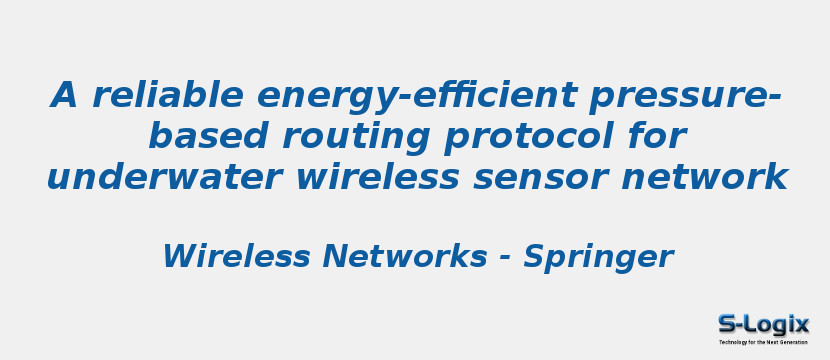Research Area: Wireless Sensor Networks
Recently, Underwater Wireless Sensor Networks (UWSNs) has witnessed significant attention from both academia and industries in research and development, due to the growing number of applications for wide range of purposes including commercial, scientific, environmental and military. Some of the major applications include pollution monitoring, tactical surveillance, tsunami warnings and offshore exploration. Efficient communication among sensors in UWSNs is a challenging task due to the harsh environments and peculiar characteristics of UWSNs. Therefore, design of routing protocol for efficient communication among sensors and sink is one of the fundamental research themes in UWSNs. In this context, this paper proposes a location-free Reliable and Energy efficient Pressure-Based Routing (RE-PBR) protocol for UWSNs. RE-PBR considers three parameters including link quality, depth and residual energy for balancing energy consumption and reliable data delivery. Specifically, link quality is estimated using triangle metric method. A light weight information acquisition algorithm is developed for efficient knowledge discovery of the network. Multi-metric data forwarding algorithm is designed based on route cost calculation which utilizes residual energy and link quality. Simulations are carried out in NS-2 with Aqua-Sim package to evaluate the performance of RE-PBR. The performance of the proposed protocol is compared with the stat-of-the-art techniques: DBR and EEDBR. The comprehensive performance evaluation attests the benefit of RE-PBR as compared to the state-of-the-art techniques in terms of network lifetime, energy consumption, end-to-end delay and packet delivery ratio.
Keywords:
Author(s) Name: Ahmad Khasawneh, Muhammad Shafie Bin Abd Latiff, Omprakash Kaiwartya and Hassan Chizari
Journal name: Wireless Networks
Conferrence name:
Publisher name: Springer
DOI: 10.1007/s11276-017-1461-x
Volume Information: volume 24, pages 2061–2075 (2018)
